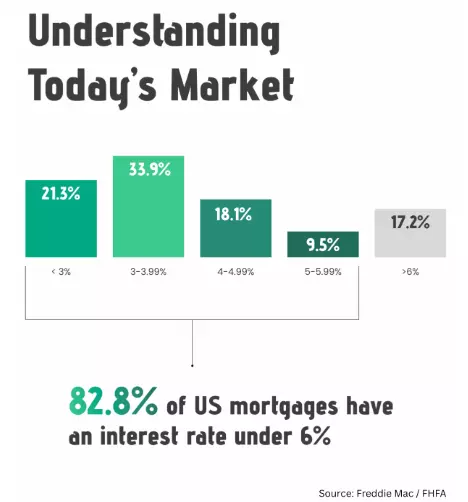Decoding the Chicagoland Real Estate Game: Buyer's vs. Seller's Markets
Is it a buyer's or seller’s market right now? This is one of the most common questions we get asked, and while the very simplified answer might be seller's at the moment, the more accurate answer is, it depends! Several factors can determine the answer for you, such as location, price point, and the type of dwelling you’re searching for. Whether you're a buyer or seller, understanding the nuances of these factors is crucial for success. Your real estate advisor can help you keep an eye on the pulse of the city, follow market trends, and adapt your strategy accordingly.
When it comes to real estate, location isn't just a buzzword – it's a defining factor. A buyer's market in one neighborhood can quickly turn into a seller's market a few miles down the road. The dichotomy between the city and its suburbs creates a captivating tale of many markets in Chicago. Buyers seeking trendy hotspots or excellent school districts may find themselves in fierce competition, thereby tipping the scales toward sellers. However, keep an eye on emerging neighborhoods or those undergoing revitalization, as they might offer hidden gems where buyers hold the upper hand. Just like the variety found in different Chicago neighborhoods, different suburbs wield different market dynamics. Some may favor buyers, with a smorgasbord of inventory waiting to be snatched up. However, in certain coveted areas, sellers rule the roost. Don’t forget to factor in the "commute conundrum" – For many, proximity to public transportation or major expressways is a non-negotiable aspect of their search. As sellers hold homes in these prized locations close to their hearts, they often have the upper hand. If you're on a house-hunting spree and looking for a little compromise, you might find yourself slightly farther from your desired location or adjusting your budget.
Speaking of budget, your price point is a decisive factor that can shift the real estate power balance. The highly sought-after areas command a premium, making affordability a challenge for many. The market leans towards sellers, who can negotiate fiercely and relish the power of a seller's market. In the suburbs, however, a different tune is played. The cost per square foot often drops outside the city limits, presenting buyers with an opportunity to spread their wings and secure a larger property for their hard-earned dollars. Sellers need to be strategic and realistic, ensuring their pricing is competitive enough to lure potential buyers into the suburban utopia.
The type of property you seek can also determine whether the market favors buyers or sellers. In Chicago, condos and townhomes are popular choices, offering urban convenience and lifestyle. Buyers have more negotiating power when supply outweighs demand, especially if developers flood the market with new construction projects. On the flip side, single-family homes in desirable neighborhoods might attract multiple offers, granting sellers the upper hand. The suburbs offer a smorgasbord of housing options, catering to diverse tastes and preferences. Single-family homes, townhouses, and even multi-acre estates entice buyers seeking more space and privacy. Sellers must be cognizant of the competition and stage their properties strategically to entice potential buyers in this ever-expanding market. The key is to explore all options with your real estate advisor and align your preferences with the prevailing market conditions.
Whether you're a buyer or a seller, navigating the Chicagoland real estate market requires a keen understanding of how location, price point, and property type dictate the balance between buyers and sellers. A knowledgeable real estate advisor is essential when dealing with so many variables. So, whether you're yearning for the vibrant energy of Chicago's downtown or seeking the tranquility of suburban life, be prepared to adapt your strategy to match the local market.
Categories
Recent Posts










